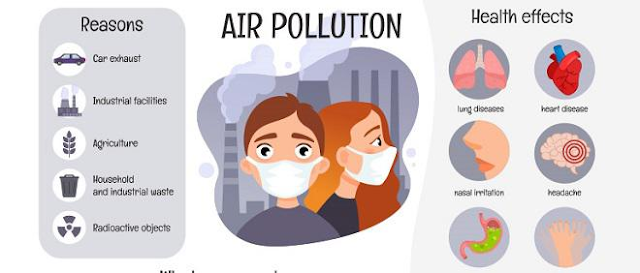Understanding substance abuse involves recognizing its multifaceted nature and the profound impacts it has on individuals, families, communities, and society as a whole.
1. Individual Impacts:
- Physical Health: Substance abuse can lead to a wide range of health problems, including liver disease, cardiovascular issues, respiratory problems, infectious diseases (like HIV/AIDS), and neurological damage.
- Mental Health: It often co-occurs with mental health disorders such as depression, anxiety, and psychosis. Substance abuse can exacerbate these conditions and vice versa, leading to a vicious cycle.
- Social and Interpersonal Relationships: Substance abuse can strain relationships with family, friends, and coworkers due to erratic behavior, neglect, or conflicts arising from substance use.
- Legal and Financial Consequences: Individuals may face legal troubles such as arrests, fines, or incarceration due to substance-related offenses. Financial problems may arise from spending on substances, loss of employment, or legal fees.
2. Family Impacts:
- Dysfunction and Stress: Substance abuse can disrupt family dynamics, leading to conflicts, domestic violence, and emotional distress for all members.
- Parental Role Impairment: Parents struggling with substance abuse may neglect their responsibilities, leading to neglect, abuse, or instability in the lives of their children.
3. Community and Societal Impacts:
- Crime and Violence: Substance abuse is linked to various crimes, including drug trafficking, property crimes, and violent offenses, leading to community safety concerns.
- Lost Productivity: Substance abuse-related absenteeism, decreased productivity, and workplace accidents result in economic losses for businesses and society at large.
- Stigmatization and Discrimination: Individuals struggling with substance abuse often face social stigma and discrimination, hindering their access to support services and employment opportunities.
Impacts of Addiction
The impact of addiction extends far beyond the individual struggling with substance abuse; it affects their relationships, families, communities, and society at large. Here are some key aspects of the impact of addiction:
1. Individual Impact:
- Physical Health: Addiction can lead to severe health consequences, including organ damage, infectious diseases, respiratory issues, and increased risk of overdose or death.
- Mental Health: Addiction often co-occurs with mental health disorders, exacerbating symptoms and impairing overall well-being.
- Emotional Well-being: Individuals may experience feelings of guilt, shame, low self-esteem, and hopelessness as a result of their addiction.
- Financial Strain: Funding addiction can lead to financial instability, debt, and poverty, as individuals prioritize substance use over basic needs and financial responsibilities.
2. Family Impact:
- Dysfunctional Relationships: Addiction can strain family dynamics, leading to conflicts, mistrust, and breakdowns in communication.
- Emotional Toll: Family members may experience anxiety, depression, stress, and trauma due to the unpredictability and chaos associated with addiction.
3. Social Impact:
- Isolation and Alienation: Addiction can lead to social withdrawal, isolation, and alienation from friends, peers, and community members.
- Stigmatization: Individuals with addiction may face discrimination, stigma, and judgment from society, hindering their ability to seek help and support.
4. Community Impact:
- Public Health Burden: Addiction contributes to increased healthcare costs, strain on emergency services, and the spread of infectious diseases.
- Crime and Violence: Substance abuse is linked to various crimes, including drug trafficking, property crimes, and violent offenses, impacting community safety and well-being.
5. Societal Impact:
- Policy and Legal Ramifications: Addiction necessitates policy responses related to drug enforcement, healthcare access, and social services to address its societal impact.
- Productivity Loss: Substance abuse leads to decreased workforce participation, productivity loss, and economic burden on society.
Addressing the impact of addiction requires a comprehensive approach that includes prevention, early intervention, treatment, and support services at individual, familial, community, and societal levels. It involves reducing stigma, increasing access to evidence-based treatment, implementing supportive policies, and fostering a compassionate and understanding environment for individuals in recovery.

Risk Factors:
1. Biological Factors:
- Genetic predisposition: Family history of addiction can increase the likelihood of developing addiction.
- Brain chemistry: Differences in brain structure and function may predispose individuals to addiction.
2. Environmental Factors:
- Early exposure: Exposure to drugs or alcohol at a young age increases the risk of addiction.
- Trauma and adversity: Childhood trauma, abuse, or neglect can contribute to substance abuse later in life.
- Peer influence: Peer pressure and social norms around substance use can influence behavior.
- Availability: Easy access to drugs or alcohol increases the likelihood of experimentation and addiction.
3. Psychological Factors:
- Mental health disorders: Conditions such as depression, anxiety, and trauma increase the risk of substance abuse as individuals may self-medicate to cope with symptoms.
- Personality traits: Traits such as impulsivity, sensation-seeking, and low self-esteem are associated with a higher risk of addiction.
Protective Factors:
1. Strong Support Networks:
- Family support: Positive relationships with family members who provide emotional support and guidance can buffer against addiction.
- Peer support: Having friends who engage in healthy behaviors and discourage substance use can be protective.
- Community involvement: Participation in community activities and access to supportive resources can foster resilience.
2. Healthy Coping Mechanisms:
- Effective stress management: Learning healthy ways to cope with stress and adversity reduces the need for substance use as a coping mechanism.
- Problem-solving skills: Developing skills to address challenges and setbacks without resorting to substance use enhances resilience.
3. Positive Mental Health:
- Emotional well-being: Building emotional resilience and a positive outlook on life can mitigate the risk of addiction.
- Access to mental health services: Early identification and treatment of mental health disorders reduce the likelihood of self-medication with substances.
Treatment and Recovery:
1. Detoxification:
- Medical supervision: Detoxification should be conducted under medical supervision to manage withdrawal symptoms safely.
- Medication-assisted treatment: Medications may be used to alleviate withdrawal symptoms and cravings during detoxification.
2. Medications:
- Pharmacotherapy: Medications such as methadone, buprenorphine, naltrexone, and acamprosate are used to manage cravings, reduce withdrawal symptoms, and prevent relapse in individuals with opioid or alcohol addiction.
3. Support Groups:
- Peer support: Participation in support groups like Alcoholics Anonymous (AA) or Narcotics Anonymous (NA) provides encouragement, accountability, and a sense of community for individuals in recovery.
4. Lifestyle Changes:
- Healthy habits: Adopting a healthy lifestyle that includes regular exercise, balanced nutrition, and adequate sleep supports overall well-being and reduces the risk of relapse.
- Avoiding triggers: Identifying and avoiding situations, people, or places associated with substance use helps individuals maintain sobriety.
By addressing both risk factors and enhancing protective factors, individuals can reduce their vulnerability to addiction and improve their chances of successful treatment and recovery. A comprehensive approach that includes early intervention, evidence-based treatment, social support, and lifestyle modifications is essential for long-term recovery from addiction.
Conclusion
In conclusion, addiction is a complex and multifaceted issue with profound impacts on individuals, families, communities, and society. It arises from a combination of biological, environmental, and psychological factors, making it crucial to address both risk and protective factors in prevention and intervention efforts. Treatment and recovery from addiction require a comprehensive approach that includes detoxification, therapy, medications, support groups, and lifestyle changes. By understanding the factors contributing to addiction and implementing effective strategies for treatment and support, individuals can overcome addiction and achieve lasting recovery, leading to healthier and more fulfilling lives for themselves and those around them.
~Abishek Kumar T.S



Comments
Post a Comment